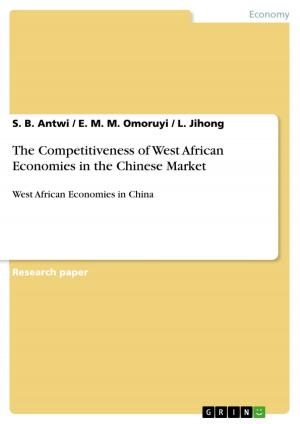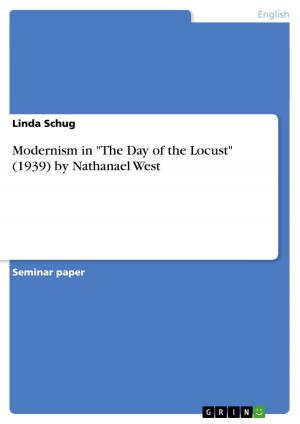U.S. Cultural Exchanges in Austria since the 1980s
Austropop - A Transcultural Style
Nonfiction, Entertainment, Drama, Anthologies| Author: | Sonja Maier | ISBN: | 9783640613960 |
| Publisher: | GRIN Publishing | Publication: | May 5, 2010 |
| Imprint: | GRIN Publishing | Language: | English |
| Author: | Sonja Maier |
| ISBN: | 9783640613960 |
| Publisher: | GRIN Publishing |
| Publication: | May 5, 2010 |
| Imprint: | GRIN Publishing |
| Language: | English |
Seminar paper from the year 2009 in the subject American Studies - Culture and Applied Geography, grade: 1, University of Vienna (Anglistik und Amerikanistik), course: CSI Vienna: U.S Cultural Exchanges since the 1980s, language: English, abstract: In this paper, I have tried to describe what a cultural transformation can be, using Austropop as a specifically Austrian example. For that, I first have rethought articles by Erward Larkey, Richard Wagnleitner and Gerd Gemünden, who we have read and discussed in class. Their contributions and the critical class debates were necessary in order to understand cultural exchanges in a German speaking context. Going back in history and reconsidering the roots of certain developments can shed light on the reasons for their existence, as in the case of Austropop. Therefore, I have added a short history of Austropop that focuses more on the how and why than on its actors. In chapter three, I have analyzed a particular Austropop artist and compared him to his American 'counterpart' and pointed out the differences, similarities and especially novelties that came to life through a cultural exchange.
Seminar paper from the year 2009 in the subject American Studies - Culture and Applied Geography, grade: 1, University of Vienna (Anglistik und Amerikanistik), course: CSI Vienna: U.S Cultural Exchanges since the 1980s, language: English, abstract: In this paper, I have tried to describe what a cultural transformation can be, using Austropop as a specifically Austrian example. For that, I first have rethought articles by Erward Larkey, Richard Wagnleitner and Gerd Gemünden, who we have read and discussed in class. Their contributions and the critical class debates were necessary in order to understand cultural exchanges in a German speaking context. Going back in history and reconsidering the roots of certain developments can shed light on the reasons for their existence, as in the case of Austropop. Therefore, I have added a short history of Austropop that focuses more on the how and why than on its actors. In chapter three, I have analyzed a particular Austropop artist and compared him to his American 'counterpart' and pointed out the differences, similarities and especially novelties that came to life through a cultural exchange.















